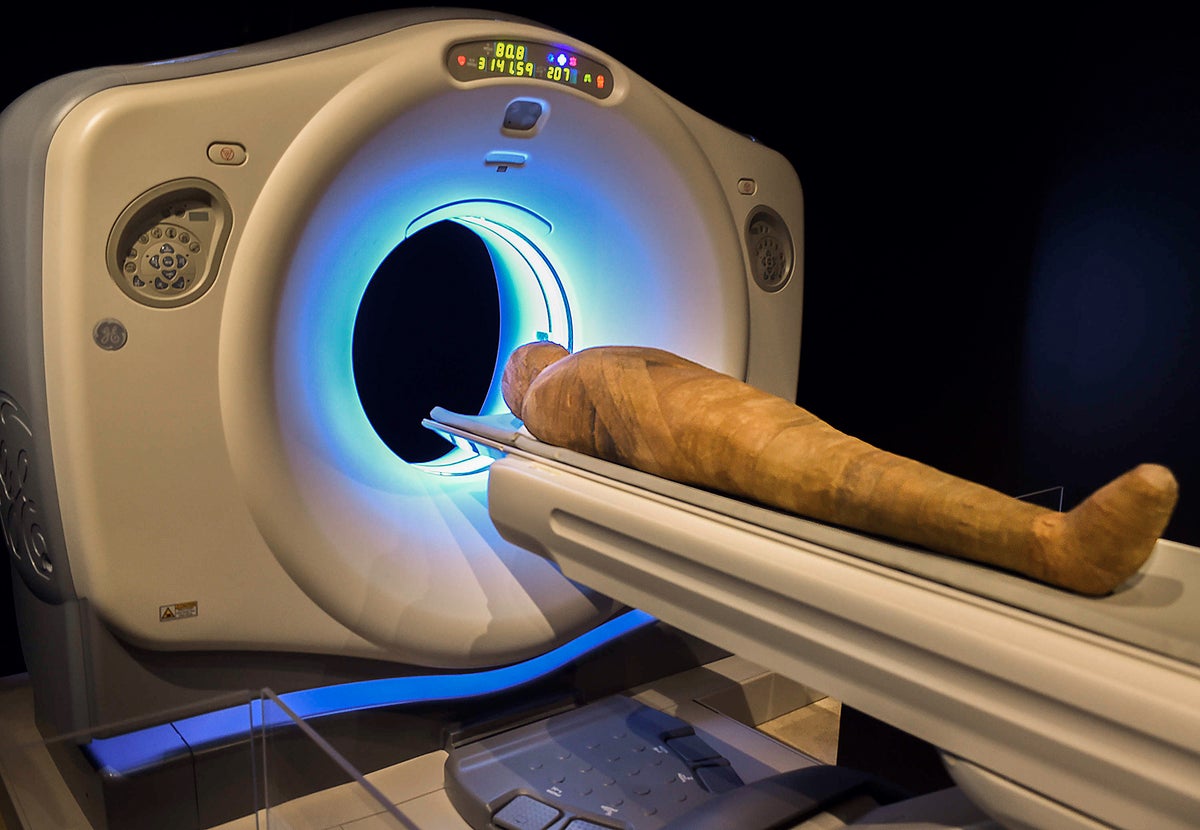| ? |
 |
|
Don't like ads? Go ad-free with TradeBriefs Premium    
CEO Picks - The best that international journalism has to offer!  S43 S43What We Know about Taiwan's Magnitude 7.4 Earthquake  An earthquake scientist discusses what we know about Taiwan’s magnitude 7. quake so far and what may happen nextThe Uranus Building at Xuanyuan Road is tilted severely as at least four people were killed and hundreds of others injured after a magnitude 7.4 earthquake struck off Taiwan's eastern coast on the Richter scale, in Hualien, Taiwan on April 3, 2024.
Continued here
|
| ? |
 |
 S1 S1Editor's Note: Now, nearly 200 years since Parkinson expressed his hope, and after four decades of unsuccessful clinical trials, a group of French researchers reports the first glimmer of success - a modest slowing of the disease in a one-year study.
| ? |
 |
 S2 S2Editor's Note: That level of public support from correctional workers is rare in death penalty cases, though it remains to be seen whether it persuades Gov. Mike Parson, a Republican, to commute Mr. Dorsey's sentence to life in prison.
| ? |
 |
|
| ? |
 |
|
|
 S3 S3 S4 S4 S5 S5 S6 S6What was it like when mammals appeared and thrived?  The evolution of life on our planet didn’t take an inevitable course to bring human beings about, but rather appears to have led to us through a series of remarkable but not necessarily mandatory events. When planet Earth first formed, all the raw ingredients for life to emerge — atoms, molecules, a potentially habitable planet at the right distance from its star — were serendipitously in place. While life itself arose relatively quickly (within the first few hundred million years) on Earth, it took billions of years for that life to become complex, differentiated, and macroscopic. The four key developments that took us there were:All of this, in tandem, led to the Cambrian explosion some 550-600 million years ago. But mammals wouldn’t emerge for several hundred million years to come, and the rise of those warm-blooded mammals to prominence on Earth would take nearly another half-a-billion years. Here’s the story of how we first appeared and thrived.
Continued here
|
 S7 S7Why the "Eisenhower matrix" is a fantastic productivity hack  Does this sound familiar? You have an important project due, but as soon as you log in for the day, your inbox pings relentlessly. You decide to sort the mess, but now you have a team meeting to attend. Before that meeting is even over, co-workers are messaging you for help putting out various fires, and your supervisor has planned an impromptu meeting to discuss a presentation due in a couple of months. By the time 5 p.m. rolls around, you’re nowhere near done with that important project, but now it has to compete with home responsibilities.“On a typical workday, it can feel as if everything was due yesterday and everything needs to be done immediately. How do you make sense of what to do next when things can get so chaotic?” Gorick Ng, a career advisor at Harvard University, tells Big Think+. “It’s important to separate what is urgent from what is important.”
Continued here
|
 S8 S8From bullied to brilliant: How Temple Grandin embraces autism 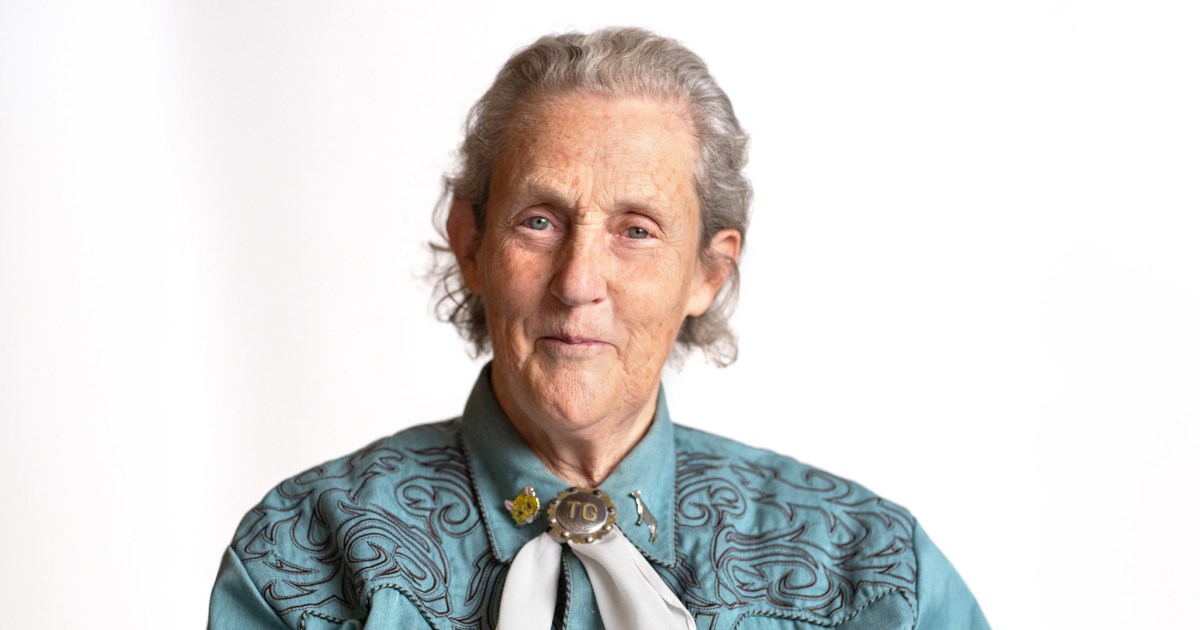 Temple Grandin, author and professor of animal science at Colorado State University, recognized early in her life that her mind worked differently from those of her peers and colleagues. As a neurodivergent woman in a male-dominated field, Dr. Grandin reveals how this different way of thinking led to groundbreaking advancements in the cattle industry. According to Grandin, there’s a major problem with the modern day overgeneralization of the word “autism.” Those diagnosed are put in one single category with no distinction between each specific case, ultimately preventing neurodivergent people from discovering their passions and contributing their unique perspectives to society.
Continued here
|
 S9 S9In 1894, physics seemed complete. Then Kelvin spotted 2 looming "clouds"  As the nineteenth century drew to a close, you would have forgiven physicists for hoping that they were on track to understand everything. The universe, according to this tentative picture, was made of particles that were pushed around by fields.The idea of fields filling space had taken off throughout the 1800s. Earlier, Isaac Newton had presented a beautiful and compelling theory of motion and gravity, and Pierre-Simon Laplace had shown how we could reformulate that theory in terms of a gravitational field stretching between every object in the universe. A field is just something that has a value at each point in space. The value could be a simple number, or it could be a vector or something more complicated, but any field exists everywhere through space.
Continued here
|
 S10 S10Is the multiverse real? Here's how physicists approach the theories  By instinct and tradition, humankind has sought to understand its environment as thoroughly as possible — to ward off dangers, embrace beneficial opportunities, and make helpful predictions. Charting the world — and, beyond that, the cosmos — out to the very frontiers of detection, following the pathways of the great voyagers, has been a key part of our heritage. By carefully documenting what we find, we strive to fill in the gaps in our comprehension. Maps, once complete, offer the comfort and benefits of knowing all that is out there.Yet, paradoxically, in scoping out our territory, we also become aware — like fenced-in animals — of the impossibilities. Our curiosity knows no bounds. Any map or system claiming to describe everything begs the question, “Might there be something else?” and, if so, “Could we somehow access those regions beyond?”
Continued here
|
 S11 S11WeWork Plans Chapter 11 Bankruptcy Exit by End of May  WeWork said on Tuesday it aimed to emerge from Chapter 11 bankruptcy in the U.S. and Canada by May 31 and had negotiated more than $8 billion, or over 40%, reduction in rent commitments from landlords. The coworking space provider, once privately valued at $47 billion, filed for bankruptcy in November as it racked up losses on its long-term leases after demand for office space plunged during the pandemic and from a shift to hybrid working.Â
Continued here
|
 S12 S12Amazon Fresh Stores Shed Their Just Walk Out Technology 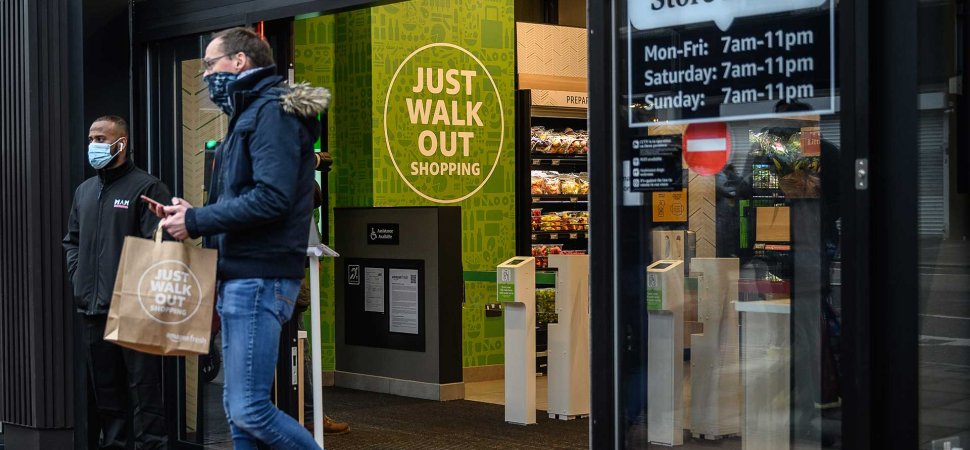 The company's well-known technology lets customers pay for items without standing in line and sends them receipts afterward. However, The Information reported Tuesday that the technology was less high-tech and more eye-tech: Over 1,000 human workers in India were meticulously monitoring and labeling video footage to ensure accurate transactions. Amazon says it will now be replaced by smart carts that allow customers to skip the checkout line but also see their spending in real time.While redesigning Fresh stores in the past year, Amazon spokesperson Carly Golden said the company heard from customers who enjoy skipping the checkout line but also wanted to view their receipts and savings as they shopped. Golden said the smart carts will give customers these benefits as well as the convenience of skipping the checkout line.Amazon's decision was first reported by The Information.
Continued here
|
 S13 S13Poll: At Least $1.46 Million Needed for Retirement  Over the years, business owners, managers, and investors have all probably extended the time frames in which they're expecting to transition from work to retirement. But a new study shows just how fast--and large--the amount of money Americans think they'll need to comfortably retire has risen lately, and many people's nest eggs aren't sufficient.Despite booming stock markets that increased the value of assets held in 401(k) accounts by 19 percent last year, a new survey shows a growing number of Americans are clearly worried about the money they'll need to retire comfortably. The study by financial services company Northwestern Mutual indicates the average respondent said they'll need $1.46 million to finance life after work. That sum represents an eye-popping 15 percent rise over the $1.27 million average given just a year ago, and an astonishing 53 percent hike over $951,000 in 2020.
Continued here
|
 S14 S14Scathing Federal Report Rips Microsoft's Shoddy Security, Insincerity in Response to Chinese Hack  In a scathing indictment of Microsoft corporate security and transparency, a Biden administration-appointed review board issued a report Tuesday saying "a cascade of errors" by the tech giant let state-backed Chinese cyber operators break into email accounts of senior U.S. officials including Commerce Secretary Gina Raimondo.The Cyber Safety Review Board, created in 2021 by executive order, describes shoddy cybersecurity practices, a lax corporate culture and a lack of sincerity about the company's knowledge of the targeted breach, which affected multiple U.S. agencies that deal with China.
Continued here
|
 S15 S15Trump's Truth Social Filings Offer a Window Into How He Does Business  How attractive to investors is a company that confirms, in detail, that it has no idea how its business will turn out over the next year or so? And no plans to collect critical information on how well it is performing? Attractive enough to make it worth $8 billion--at least for a moment. That company is Trump Media & Technology Group (TMTG), the entity behind the social media platform Truth Social, which started publicly trading this week after its merger with Digital World Acquisition Corp., a blank check or special purpose acquisition company. Former president Donald Trump controls 57.6 percent of the shares and is the show pony of the platform.
Continued here
|
 S16 S16Here's What Employees Think the Workplace Will Look Like in 30 Years  That's according to employee predictions in a new survey of more than 500 U.S. workers from the job site Monster. Looking 30 years ahead at the workplace of the future, these employees expect to see more flexibility, but also continued challenges. Fifty-eight percent of workers predict that hybrid will be the most common work model, according to the report. There's already some evidence of this growth in recent data, which shows that work location flexibility is on the rise and that the hybrid model is gaining traction. Â
Continued here
|
 S17 S17AI Will Give You Friday Off, Says Billionaire Steve Cohen 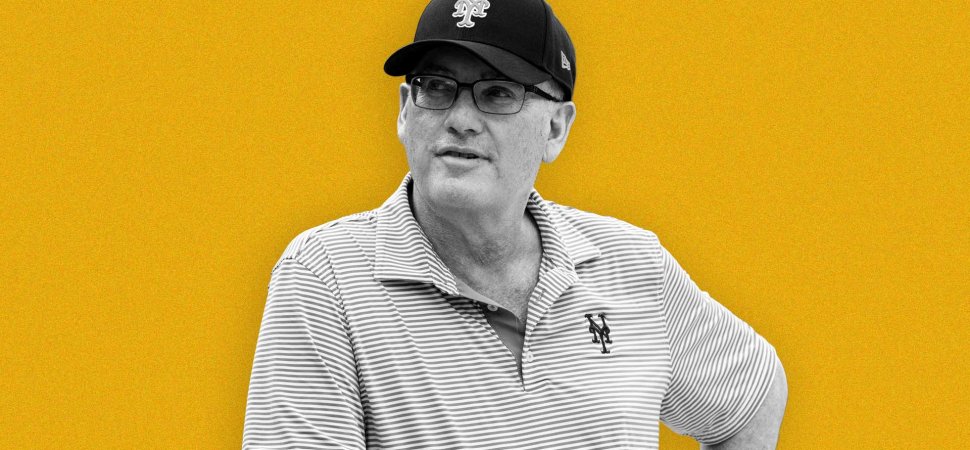 "My belief is a four-day workweek is coming," Cohen told CNBC. "[B]etween the advent of AI, generally, we hear from people that Fridays are just not, people are not as productive on Fridays, and so I just think it's an eventuality."The exact timeline remains wobbly, but Cohen, naturally, sees investment opportunities with the move to a shorter workweek that would ultimately benefit companies operating within the leisure economy.
Continued here
|
 S18 S18Bitcoin or Bust: Investors Are Still Bankrolling Crypto Startups 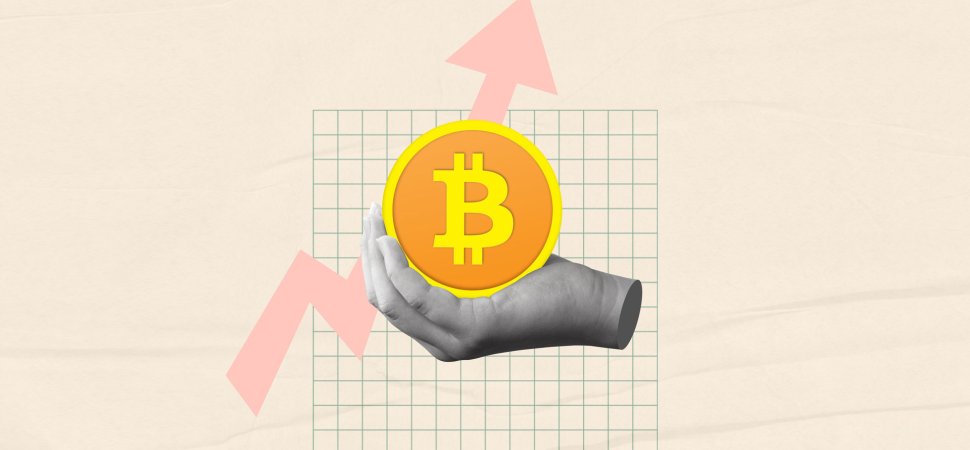 Less than a week after Sam Bankman-Fried--former FTX mogul, crypto industry poster child and prolific philanthropist--was sentenced to prison for 25 years for orchestrating an $8 billion fraud, Bloomberg reports that crypto VC firm Paradigm is in talks to raise between $750 million and $850 million for a new fund. There were already signs that venture capitalists were interested in revamping the industry even before SBF's conviction: In February, Andreessen Horowitz invested $100 million in EigenLayer, a startup that focuses on a crypto security protocol known as "restaking" on the Ethereum blockchain. And in March, it participated in the $28 million Series B funding of Espresso Labs, another startup that aims to verify transactions on the Ethereum blockchain.Â
Continued here
|
 S19 S19What Is Flip Commerce and Should Your Brand Join It?  Worried that a possible TikTok ban could mess with branded social media content? Have no fear--there's a potential challenger rising to the occasion, and it just scored $144 million in Series C funding Bloomberg reported.Los Angeles-based Flip, a digital shopping network founded in 2019, is poised to do much of what TikTok currently does for brands. Flip creators make product review videos, from which viewers can directly purchase products. Videos are entirely organic:Â Both creators and brands are banned from the platform if they produce paid content, founder and CEO Noor Agha told PYMNTS in April 2023.Â
Continued here
|
 S20 S20With 1 Simple Word, LSU's Angel Reese Just Taught a Brilliant Lesson in Power  When Angel Reese announced Wednesday that she'll forgo her last year of NCAA college basketball eligibility at LSU, and instead enter the WNBA draft, she had some interesting and quotable things to say. Yes, it might have been more expected for any college athlete to announce that they were turning pro in an interview with a sports-related brand, or by themselves on Twitter. But Reese made her announcement in Vogue. (Or, on its website.)
Continued here
|
 S21 S21How Gig Work Pits Customers Against Workers  While gig work has offered workers benefits like flexibility, it has also come at the expense of lower pay, limited protections, surveillance, and limited privacy. Tactics such as petitions and boycotts have been used to effect change for workers in the traditional economy, but these have proven far less effective in the gig economy. To explore why, the authors use sociologist Robin Leidner’s concept of the customer service triangle to illustrate the ways that workers, companies, and customers align with each other to achieve different outcomes, and outlines how gig work actively reduces customer-worker alignment. To achieve a better balance for all three, the authors urge companies and customers to step up, with companies taking the lead.
Continued here
|
 S22 S22Do You Understand the Problem You're Trying to Solve?  Problem solving skills are invaluable in any job. But all too often, we jump to find solutions to a problem without taking time to really understand the dilemma we face, according to Thomas Wedell-Wedellsborg, an expert in innovation and the author of the book, What’s Your Problem?: To Solve Your Toughest Problems, Change the Problems You Solve.
Continued here
|
 S23 S23The Key to Consistent Growth Is Having the Right Incentives  Favaro is the chief strategy officer at BERA Brand Management. In this episode you’ll learn why it’s important to focus on creating incentives for organic growth within your organization. You’ll also learn why you should avoid “typecasting” your business units as “cash cows” or “growth engines,” if you want them to achieve ongoing growth.
Continued here
|
 S24 S24How Automakers Can Address Resistance to Self-Driving Cars  Research involving multiple experiments found that consumers have biased views of their driving abilities relative to those of other drivers and automated vehicles. These findings have implications for the adoption of partly or fully automated vehicles, which one day could reduce traffic-related deaths. This article discusses the findings and offers five ways for auto manufacturers and government policymakers can counteract consumers’ biases.
Continued here
|
 S25 S25A "Growth-at-All-Costs" Mindset Can Stall Your Company  The strength of any organization depends on its people. Research has found a strong positive relationship between employee well-being and firm performance. When people feel healthy and engaged, their work performance improves, their relationships are stronger, and they’re better motivated to impact change. This is what’s at the heart of “human sustainability”— a concept introduced in Deloitte’s “2023 Global Human Capital Trends” report. It’s about creating value in people’s lives — from their physical and mental well-being to their career skills and overall sense of purpose. It starts with individuals, but ultimately has a ripple effect to the people they encounter and the organizations they’re part of. Research shows that a focus on human sustainability drives stronger business results. All organizations need a business growth strategy where people feel they’re prioritized. Before you launch your next growth initiative, make sure you’re not sabotaging your employees, and your company in turn. This article offers five questions to ask yourself as you’re setting your own growth strategy.
Continued here
|
 S26 S26China is betting on battery swaps to tackle EV chargers shortage 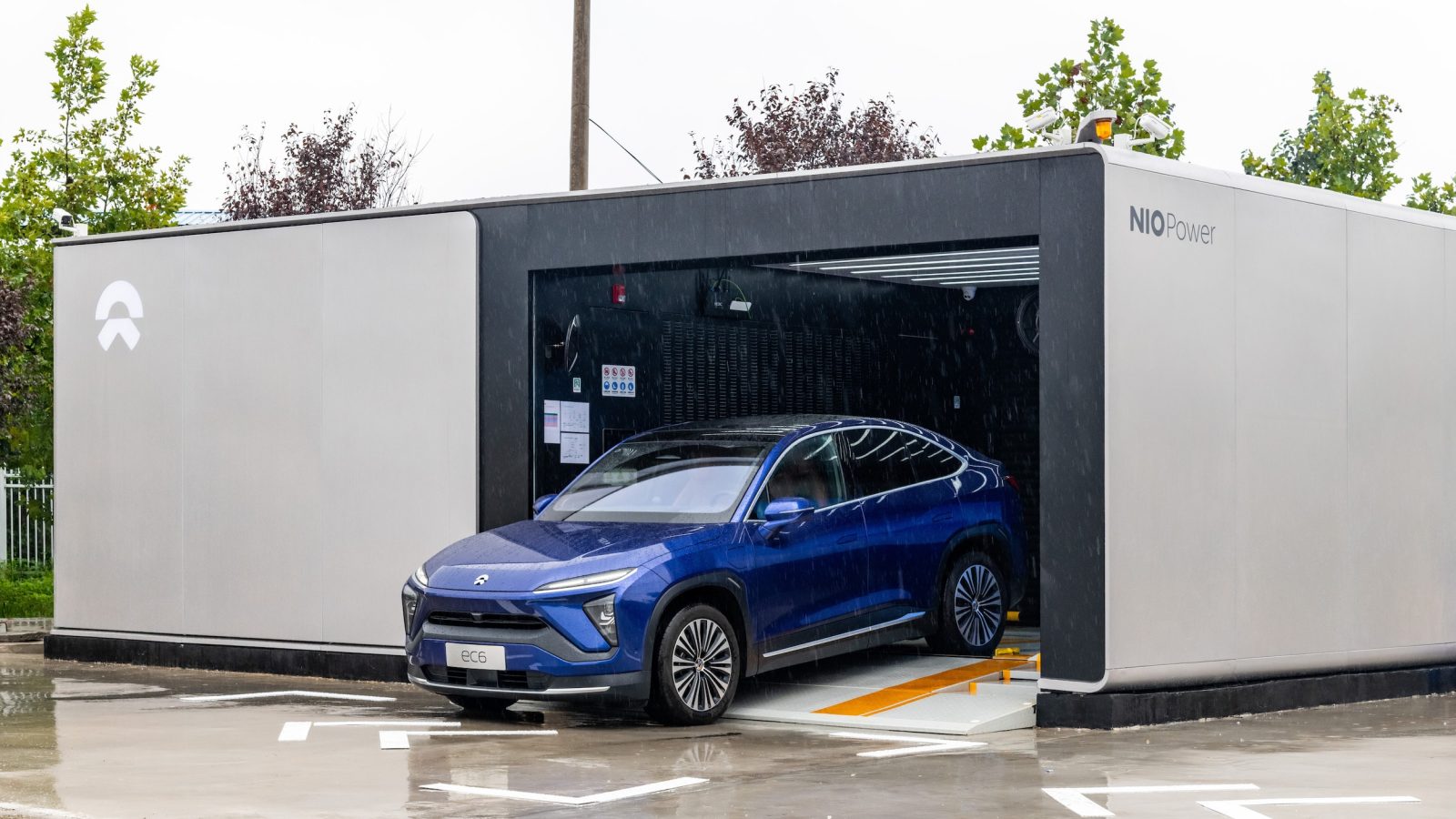 Alan Wu’s recent six-hour journey from Bengbu, in eastern China, to Shanghai in his electric vehicle was surprisingly seamless. That’s because Wu didn’t have to stop and wait for his battery to charge — he stopped at a battery swapping station. Instead of parking next to a row of charging stations, he drove into a modern, garage-like structure and pressed a button on his dashboard. After he backed his vehicle onto an elevated platform, a mechanical arm extended to remove the original battery from the bottom of the car and install a new battery, as staff looked on for quality assurance. The automated process was complete in just five minutes.
Continued here
|
 S27 S27 S28 S28 S29 S29 S30 S30 S31 S31Science Has Discovered How to Make Perfect Gin In an Edinburgh laboratory in the second half of 2023, four chemists armed with a nuclear magnetic resonance (NMR) spectrometer took on the unregulated Wild West of the gin industry.A total of 16 samples of gin endured the spectrometer's powerful magnetic field to create a "fingerprint"âin the form of peaks along an x-axisâwhich researchers David Ellis and Ruaraidh McIntosh then put together like "a jigsaw puzzle"; when complete, the puzzle revealed exactly which compounds were responsible for a certain gin's flavor, aroma, and mouthfeel. The graphical marks could impart even the physical origin of the juniper berries used in a gin, offering a level of accuracy beyond traditional sensory analysis. The team published its results in a paper late last year.
Continued here
|
 S32 S32'In 24 Hours, You'll Have Your Pills': American Women Are Traveling to Mexico for Abortions This story originally appeared on WIRED en Español, and has been translated from Spanish.At 6 pm, after a long day at work and with her children out of the house, Tania (not her real name) takes four pills and waits for them to melt under her tongue. Six hours later, the pills having dissolved and dispersed through her body, she begins to expel blood clots that she doesnâÂÂt look at. She bleeds, but she was told that this could be normal; her belly is in great pain, but she was also told that this would be normal. She cries in the darkness of her room in San Diego. She is afraid to be alone.
Continued here
|
 S33 S33Celestron Trailseeker Review: High Quality Binoculars Without the High Price If you buy something using links in our stories, we may earn a commission. This helps support our journalism. Learn more. Please also consider subscribing to WIREDI started bird-watching around the age of 0. That's what happens when your parents are birders. I started using binoculars by age 5, an ancient pair of Bushnell 10x50s I'd grab when my father wasn't looking. They were hugeâso heavy I could barely lift themâbut the world they opened up was well worth the neck strain. Forty-five years later, I am less cavalier about the neck strain.
Continued here
|
 S34 S34The Mystery of 'Jia Tan,' the XZ Backdoor Mastermind The scourge of software supply chain attacksâÂÂan increasingly common hacking technique that hides malicious code in a widely used legitimate programâÂÂcan take many forms. Hackers can penetrate an update server to seed out their malware, or even break into the network where the software was developed to corrupt it at the source. Or, in the case of one particularly insidious software supply chain attacker known as Jia Tan, they can spend two years politely and enthusiastically volunteering to help.Over the weekend, the cybersecurity and open source software community was shocked by the news that a relatively new, experimental version of XZ UtilsâÂÂa compression utility integrated into many popular distributions of LinuxâÂÂcontained a backdoor that would have allowed hackers in possession of a specific private key to connect to the backdoored system and run their own commands as an administrator. Only some chance detective work carried out by a lone Microsoft engineer, Andres FreundâÂÂwhoâÂÂd detected a strange delay in how the remote connection protocol SSH was running in a version of the Linux variant DebianâÂÂcaught the spy trick before it ended up in many millions of systems worldwide.
Continued here
|
 S35 S35US Navy Veteran Who Feds Say Rammed FBI Headquarters Had QAnon-Linked Online Presence A former Navy submarine technician was arrested after law enforcement says he drove an SUV into the FBI headquarters near Atlanta on Monday afternoon. It is still unclear why the suspect, Ervin Lee Bolling, attempted to force entry into the headquarters, but research conducted by the nonpartisan public-interest nonprofit Advance Democracy and shared exclusively with WIRED has found that accounts believed to be associated with Bolling shared numerous conspiracy theories on social media platforms, including X and Facebook.Just after noon on Monday, Bolling rammed his burnt-orange SUV with South Carolina license plates into the final barrier at FBI Atlanta's headquarters, wrote Matthew Upshaw, an FBI agent assigned to the Atlanta office, in a sworn affidavit on Tuesday. Upshaw added that after Bolling crashed the SUV, he left the car and tried to follow an FBI employee into the secure parking lot. When agents instructed Bolling to sit on a curb, he refused and tried again to enter the premises. The affidavit also stated that Bolling resisted arrest when agents subsequently tried to detain him.
Continued here
|
 S36 S36AI-Generated Spoofs of 'RuPaul's Drag Race' Are Flooding Instagram and TikTok Now in its 16th season, RuPaul's Drag Race has birthed more than a few iconic lip-sync battles, but precious few have featured Muppets. None, even. AI Drag Race changed that. In the Instagram account's recent season finale, Miss Piggy, wearing an AI-generated drag look, faced off against lover-turned-rival Kermisha Ihman, who had a thick, 40-inch-long ponytail atop her green felt head.Tackling Lady Gaga's "Telephone," the two whirled and jumped, kicking and bucking in front of head judge Betty Boop. Kermisha worked her faux-nailed webbed feet, sickening in her bejeweled purple corset, but ultimately she fell to Piggy, whose fringe flew as she went for a well-timed jump split at the song's climax. As the commenters watching the video noted, "Kermisha fought hard and devoured," but "Miss Piggy ate."
Continued here
|
 S37 S37Humans Find Total Eclipses Startling. What about a Komodo Dragon? 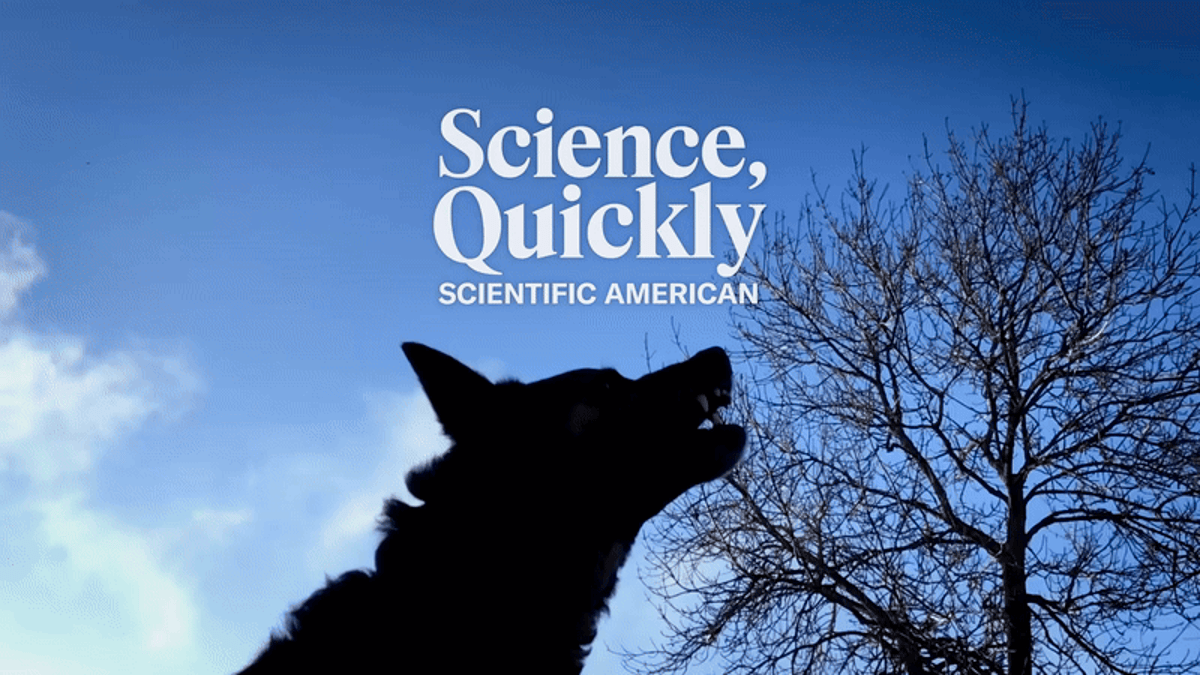 Eclipses can affect animals, and biologists are preparing to see what happens during totality on April 8.Ashleigh Papp: This spring—on April 8, 2024, to be exact—our moon will pass between Earth and the sun. For a small window of time during the day, the sun will go dark, temperatures will drop, and it will literally look like the middle of the night.
Continued here
|
 S38 S38New Law Allowing Religion into Science Classrooms Is Dangerous for Everyone  It is imperative that we protect science education from “intelligent design” and other alternative “theories”I grew up a creationist in the rural southeastern U.S. I am now a scientist, educator, wife, mother and person of faith. Regardless of whether you practice religion, you should fight to prohibit the teaching of nonscientific alternative ideas in science classrooms and use your vote and your voice to prevent the inclusion of religious beliefs in public education. A recently signed law in West Virginia illustrates why.
Continued here
|
 S39 S39 S40 S40Eclipses Reveal a Comforting Clockwork in Our Chaotic Universe  How clearly can you envision the year 2866? It’s probably a dim view at best; after all, it’s eight and a half centuries distant. It’s as far in the future as the Crusades are in the past. This summer Paris will host the Olympics, which in theory happen every four years; doing the math, we can predict that the games will also take place, or at least ought to take place, in 2864 (“The Games of the CCXLIII Olympiad”). Dare we presume that a U.S. presidential election will also happen in 2864, with 2866 bringing a round of midterm elections?Over such vast spans of time, our vision is inherently fuzzy. Will humans have colonized the solar system by then, or perhaps even ventured to the stars? Or will climate change, or some other natural or human-made disaster, have rendered our planet uninhabitable? Will killer robots rule the Earth—the “bad” timeline of the Terminator films come to life? Such musings bring to mind the old saying (variously attributed to Yogi Berra or the physicist Niels Bohr): “It is difficult to make predictions, especially about the future.”
Continued here
|
 S41 S41Plastic Pollution Is Drowning Earth. A Global Treaty Could Help  A marine scientist discusses the problem of plastic pollution and her hopes for an international treaty to tackle itOur world is increasingly plastic. Back in the 1950s, humanity produced just 5 million metric tons of plastic per year; today it’s 400 million metric tons. Since plastic can take hundreds or thousands of years to biodegrade, pretty much all of it is still around, except for the roughly 20 percent that’s been burned. By some estimates, there are now eight gigatons of accumulated plastic on Earth — twice as much as the weight of all animal life.
Continued here
|
 S42 S42 S44 S44A Rare Greenhouse Gas Comes from--Termite Pesticide?  As much as 85 percent of U.S. emissions of sulfuryl fluoride—a rare greenhouse gas and common pesticide used to treat termites—comes from CaliforniaCLIMATEWIRE | A little-known greenhouse gas is slowly building up in Earth’s atmosphere. And a large chunk of those emissions come from California, a state with otherwise aggressive greenhouse gas reduction targets.
Continued here
|
 S45 S45What Will the Weather Be along the Path of the Eclipse?  From cloud coverage to clear skies, here’s up-to-date weather conditions expected along the path of April 8’s total solar eclipseThis article is part of a special report on the total solar eclipse that will be visible from parts of the U.S., Mexico and Canada on April 8, 2024.
Continued here
|
 S46 S46 S47 S47Basketball Analysis with Dean Oliver  Wharton’s Cade Massey, Adi Wyner, and Shane Jensen speak with Dean Oliver, author of Basketball on Paper, about how he assesses college basketball, the women’s Final Four, the impact of motivation, player evaluations, and more.©2024 Knowledge at Wharton. All rights reserved. Knowledge at Wharton is an affiliate of the Wharton School of the University of Pennsylvania.
Continued here
|
 S48 S48What happens to sex in midlife? A look at the "bedroom gap"  Menopause isn't just hot flashes, says gynecologist and sexual medicine specialist Maria Sophocles. It's often accompanied by overlooked symptoms like painful sex or loss of libido. Shedding light on what she calls the "bedroom gap," or the difference in sexual expectations of men and women in midlife due to societal norms, Sophocles advocates for education, medical advancement and a new understanding of menopause — because sex should be pleasurable and comfortable for everyone.
Continued here
|
 S49 S49Want to succeed in business? Find a problem to solve 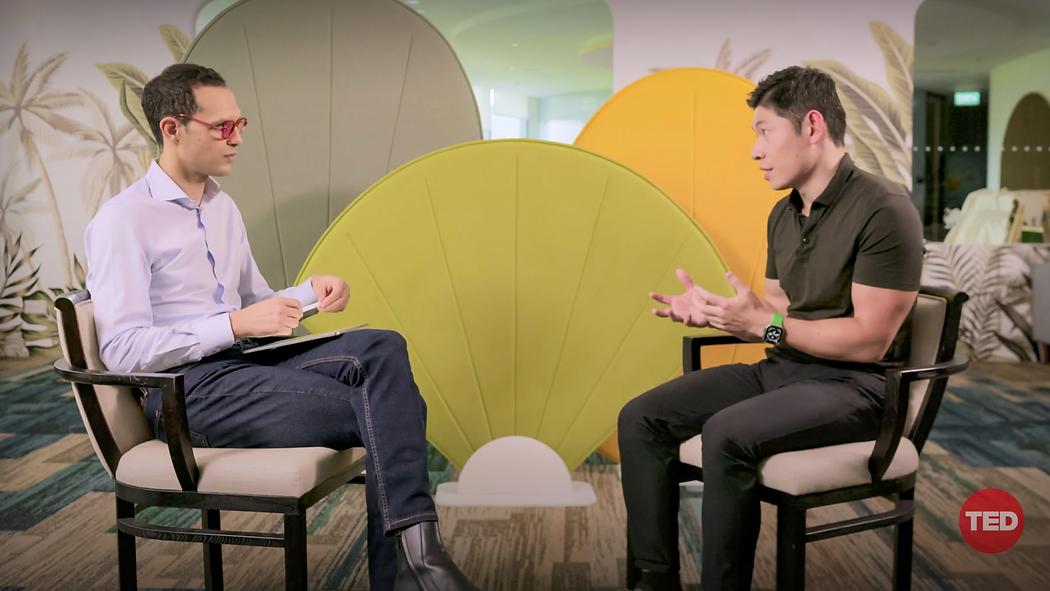 Anthony Tan — the CEO of Grab, Southeast Asia's leading super-app — talks about launching a business that not only turns a profit but also helps people and the environment. In conversation with digital strategist Amane Dannouni, Tan discusses the design choices and tension points of running such a company and why it's something every entrepreneur should consider doing.
Continued here
|
 S50 S50The chemistry of milk washing, aka the secret to Ben Franklin's favorite tipple  It's well-known that Benjamin Franklin was a Founding Father who enjoyed a nice tipple or two (or three). One of his favorite alcoholic beverages was milk punch, a heady concoction of brandy, lemon juice, nutmeg, sugar, water, and hot whole milk—the latter nicely curdled thanks to the heat, lemon juice, and alcohol. It employs a technique known as "milk washing," used to round out and remove harsh, bitter flavors from spirits that have been less than perfectly distilled, as well as preventing drinks from spoiling (a considerable benefit in the 1700s).
Continued here
|
 |
TradeBriefs Publications are read by over 10,00,000 Industry Executives About Us | Advertise Privacy Policy Unsubscribe (one-click) You are receiving this mail because of your subscription with TradeBriefs.
Our mailing address is GF 25/39, West Patel Nagar, New Delhi 110008, India |













































































